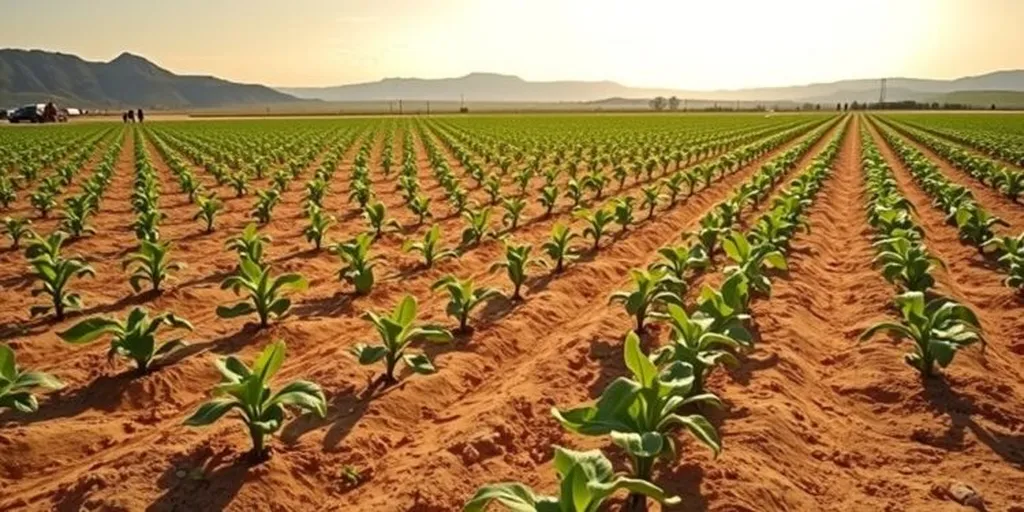In the heart of Saudi Arabia, researchers are uncovering innovative ways to combat environmental stress in crops, with implications that could resonate far beyond the fields of Brassica juncea. Mohammad Faisal, a scientist from the Department of Botany & Microbiology at King Saud University, has led a study that could revolutionize how we approach crop resilience in the face of heavy metal toxicity.
The study, published in the journal *Scientific Reports* (known in English as *Nature Scientific Reports*), investigates the role of silicon oxide nanoparticles (SiO2 NPs) in mitigating arsenic (As) toxicity in Brassica juncea, a plant commonly known as Indian mustard. Arsenic stress is a significant challenge in agriculture, particularly in regions where soil contamination is prevalent. Faisal’s research demonstrates that arsenic stress impairs various physiological parameters, including the accumulation of key metabolites such as flavonoids, phenolics, proteins, soluble sugars, and free amino acids.
However, the application of silicon oxide nanoparticles has shown promising results. “The foliar application of SiO2 NPs effectively alleviated arsenic-induced toxicity by enhancing antioxidant enzyme activities and maintaining nutrient homeostasis,” Faisal explains. This breakthrough could have profound implications for sustainable agriculture, particularly in areas where heavy metal contamination poses a threat to crop productivity.
The study found that SiO2 NPs improved several critical growth parameters. Notably, the transpiration rate increased by 52%, leaf nitrogen content by 33%, and phenolic content by 42%. Additionally, there was a significant reduction in oxidative stress markers, with hydrogen peroxide and malondialdehyde levels decreasing by 41% and 39%, respectively. These findings suggest that SiO2 NPs could play a pivotal role in mitigating the damaging effects of arsenic stress on photosynthesis, antioxidant mechanisms, and nitrogen metabolism.
The commercial impacts of this research are substantial. In the energy sector, where heavy metal contamination is a common byproduct of industrial processes, the ability to enhance crop resilience could lead to more sustainable and productive agricultural practices. “This research offers valuable insights for promoting sustainable crop production under environmental stress conditions,” Faisal notes. By integrating SiO2 NPs into agricultural practices, farmers could potentially improve crop yields and reduce the economic losses associated with heavy metal toxicity.
The study’s findings also highlight the broader potential of nanoparticles in agriculture. As precision farming practices continue to evolve, the use of innovative materials like SiO2 NPs could become a cornerstone of modern agricultural techniques. This research not only addresses immediate challenges in crop production but also paves the way for future developments in sustainable agriculture.
In conclusion, Mohammad Faisal’s research represents a significant step forward in the quest for sustainable and resilient crop production. By leveraging the unique properties of silicon oxide nanoparticles, farmers and agricultural scientists can mitigate the damaging effects of environmental stress, ensuring food security and economic stability in the face of growing global challenges.

